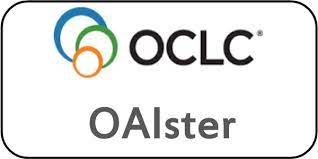Profile of HIV Infection in Children and Its Correlation with their CD4 Counts
Keywords:
CD4 count, children, clinical features, HIV, immunological stage, malnutrition, schoolingAbstract
Objectives: (i) To study the clinical profile of human immunodeficiency virus (HIV) infection in children. (ii) To establish the pattern of correlation of these clinical features with the CD4 counts. (iii) To evaluate the effect of highly active antiretroviral therapy (HAART) on CD4 count of children at 6 months of therapy. Material and methods: Sixty-eight children enrolled at our ART centre or admitted at our hospital were enrolled for the study. Their case papers were reviewed. Complete clinical profile was obtained and baseline investigations including CD4 counts done. Children were then followed up and repeat CD4 levels done 6 monthly. The children were managed as per current guidelines. Results: The mean age at presentation was 6.54 ± 2.69 years. Male-to-female ratio was 2.579:1. Vertical transmission accounted for 95.58% of cases. Prolonged fever and chronic diarrhea were the most common symptoms and hepatosplenomegaly and lymphadenopathy were the most common signs. There was strong correlation between clinical and immunological staging (p < 0.0001). Failure to thrive, recurrent skin infections and abscesses were signs and symptoms at lowest CD4 levels. Orphan-hood (p < 0.0001) and socioeconomic status (p = 0.0003) significantly affected schooling among these children. Malnutrition, anemia and stunting were features of severe immunosuppression. HAART significantly raised the CD4 count at 6 months of therapy (paired ‘t’ = 6.830, p < 0.0001) with best results at higher baseline CD4 levels. Gastritis was the most common (81.5%) adverse effect and the major cause of decreased compliance. Tuberculosis and candidiasis were the commonest opportunistic infections and pneumonia accounted for majority of hospitalizations (61.5%). Conclusions: Clinical and immunological staging have good correlation. The features of severe immunosuppression are failure to thrive, recurrent bacterial skin infections, abscesses, Pneumocystis jirovecii pneumonia, extrapulmonary tuberculosis, anemia and stunting. Orphan-hood and poor socioeconomic status affect schooling in these children. Early initiation of ART at higher baseline CD4 has best results. Gastritis is the major adverse effect causing decreased compliance.
Downloads
Published
Issue
Section
License
Copyright (c) 2021 Vl Raghuvanshi

This work is licensed under a Creative Commons Attribution 4.0 International License.
The copyright for all the editorial material contained in Asian Journal of Pediatric Practice, in the form of layout, content including images and design, is held by IJCP Publications Ltd. No part of this publication may be published in any form whatsoever without the prior written permission of the publisher. Indian Journal of Clinical Practice does not guarantee, directly or indirectly, the quality or efficacy of any product or service described in the advertisements or other material which is commercial in nature in this issue.







